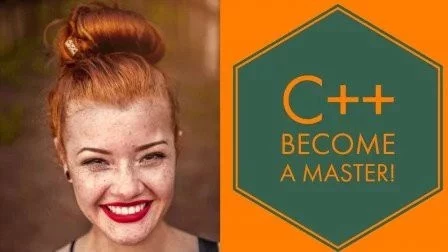Decimal is the base-10 number system we use in everyday life, while octal is a base-8 number system that uses digits from 0 to 7. Octal numbers are often used in programming and computer systems, particularly in older systems and in Unix file permissions. In this article, we will write a program in C to convert a decimal number into its octal equivalent.

with hands-on learning.
get the skills and confidence to land your next move.
Understanding The Problem
To convert a decimal number into octal, we repeatedly divide the number by 8 and store the remainders. Reading these remainders in reverse order gives us the octal number. For example, 25 in decimal is divided as 25 ÷ 8 = 3 remainder 1 and 3 ÷ 8 = 0 remainder 3, so the octal result is 31.
Program 1: Using Loops and Arrays
This method uses division by 8 repeatedly and stores remainders in an array. At the end, the array is printed in reverse to get the octal representation.
#include <stdio.h>
int main() {
int n, octal[32], i = 0;
printf("Enter a decimal number: ");
scanf("%d", &n);
while (n > 0) {
octal[i] = n % 8;
n = n / 8;
i++;
}
printf("Octal equivalent: ");
for (int j = i - 1; j >= 0; j--) {
printf("%d", octal[j]);
}
printf("\n");
return 0;
}This program works by repeatedly dividing the number by 8, collecting remainders, and then printing them in reverse order, forming the octal number.
Program 2: Using Recursion
Recursion can also be used to convert decimal to octal. It divides the number until it reaches zero, then prints the remainders on the way back.
#include <stdio.h>
void decimalToOctal(int n) {
if (n == 0)
return;
decimalToOctal(n / 8);
printf("%d", n % 8);
}
int main() {
int n;
printf("Enter a decimal number: ");
scanf("%d", &n);
if (n == 0) {
printf("0");
} else {
decimalToOctal(n);
}
printf("\n");
return 0;
}This recursive approach avoids arrays and prints the digits in the correct order directly.
Program 3: Using sprintf()
C’s standard library allows converting decimal to octal using format specifiers in sprintf(). This method stores the octal result as a string.
#include <stdio.h>
int main() {
int n;
char octal[100];
printf("Enter a decimal number: ");
scanf("%d", &n);
sprintf(octal, "%o", n); // Convert decimal to octal string
printf("Octal equivalent: %s\n", octal);
return 0;
}Here, %o in sprintf() formats the decimal number into octal. This method is concise and useful when the octal value needs to be stored as text instead of printed immediately.
FAQs
Q1: Why do we use octal numbers in programming?
Octal was widely used in older computing systems because it represents binary in a more compact form, grouping three bits into one octal digit.
Q2: Which method is faster, loops or recursion?
The loop method is slightly faster, while the recursion method is shorter and easier to read.
Q3: Can this program handle negative numbers?
Not directly. Additional logic would be needed to manage negative values properly.
Q4: Why use sprintf() instead of printing directly?sprintf() allows storing the octal number as a string, which is useful for further processing, saving to files, or network transmission.
Conclusion
Converting decimal to octal is a simple process of repeatedly dividing by eight and recording remainders. The iterative and recursive approaches are straightforward, while the sprintf() method provides a clean, string-based solution. Understanding all three techniques gives flexibility in handling decimal-to-octal conversions in C.
References & Additional Resources
- C Programming Tutorial – Beginner-friendly resource for learning loops and number systems.
- GeeksforGeeks – Decimal to Octal – Covers multiple approaches for conversion.
- TutorialsPoint – Number Systems – Explains different number systems including octal.







